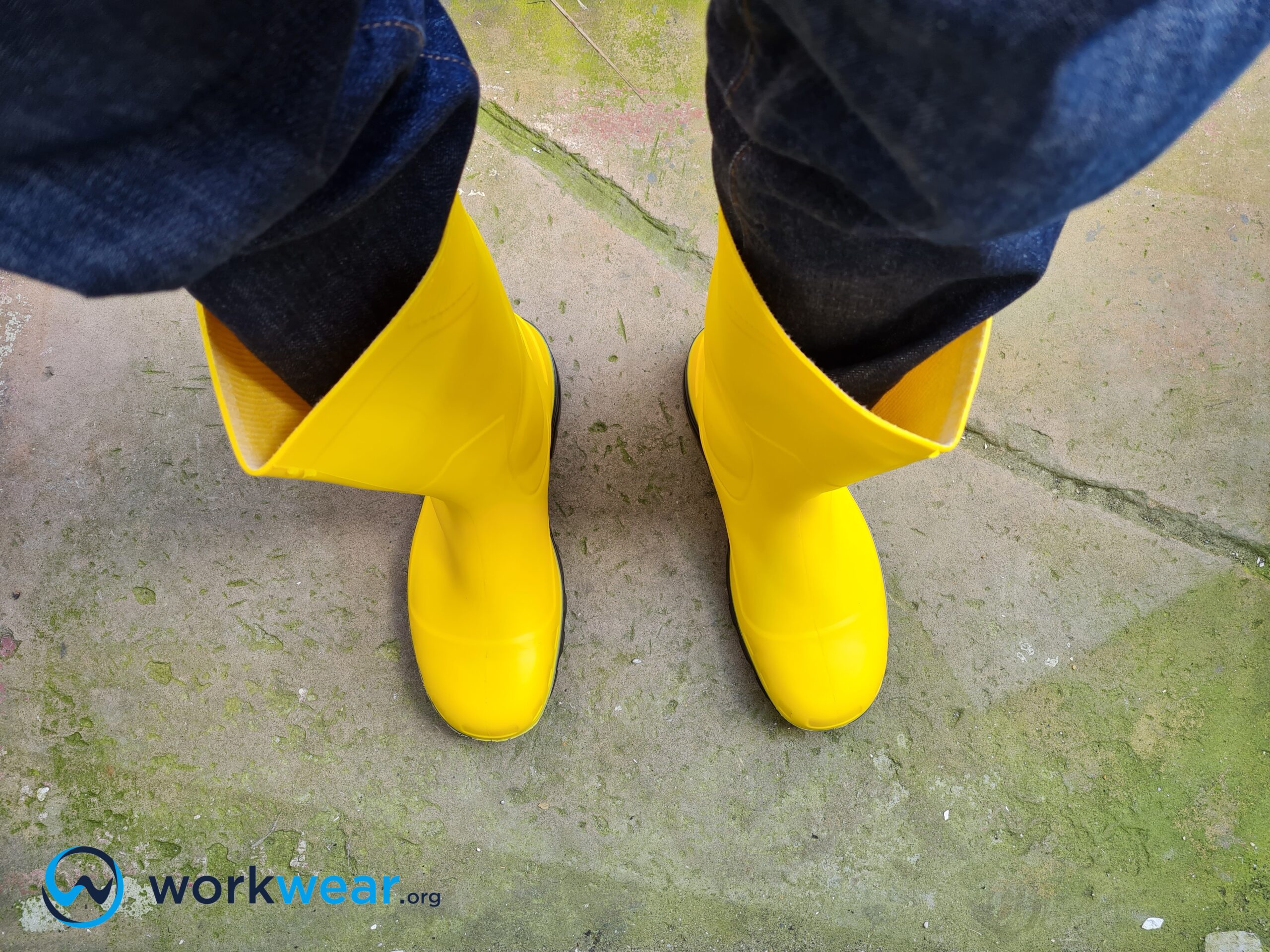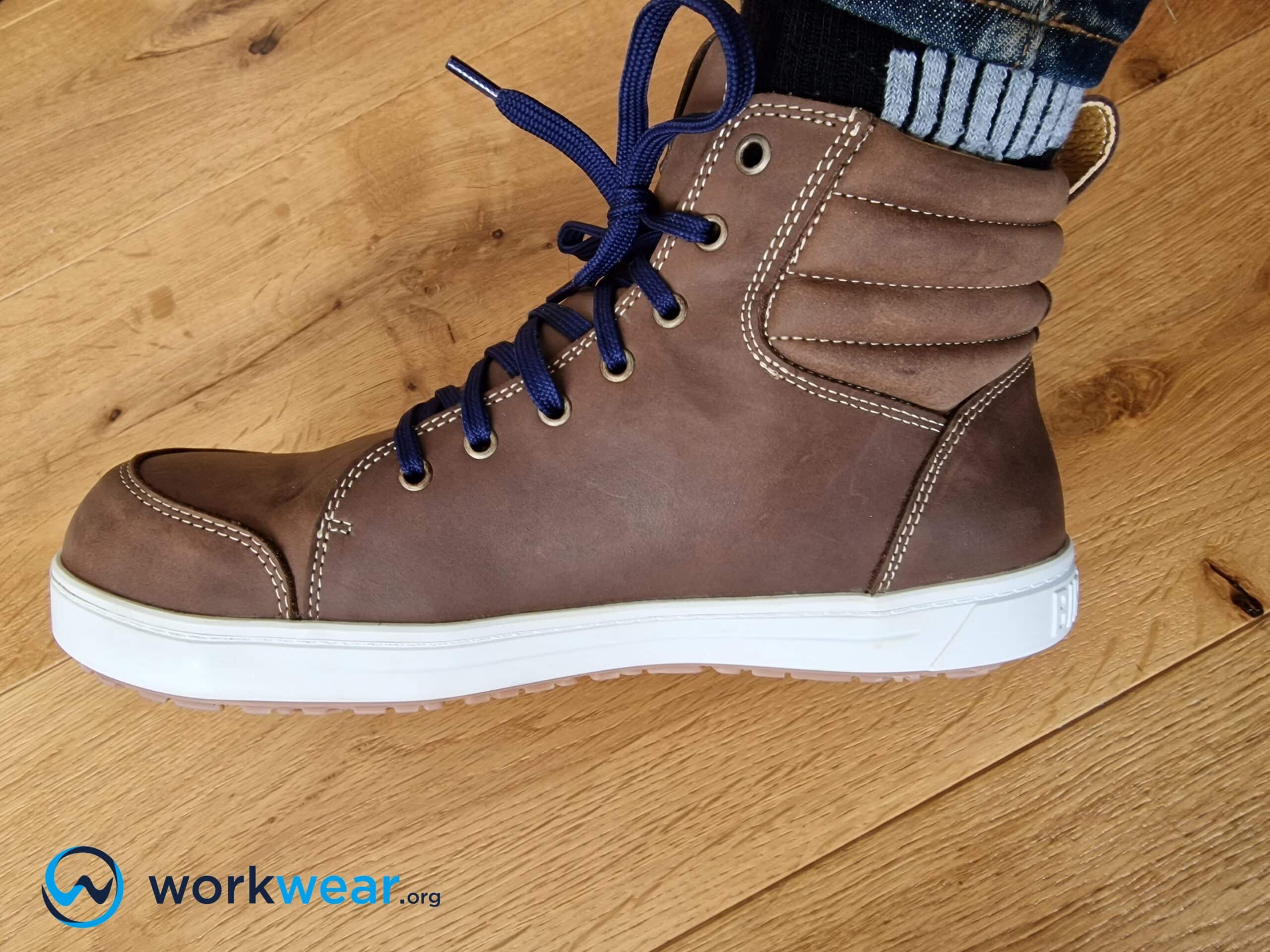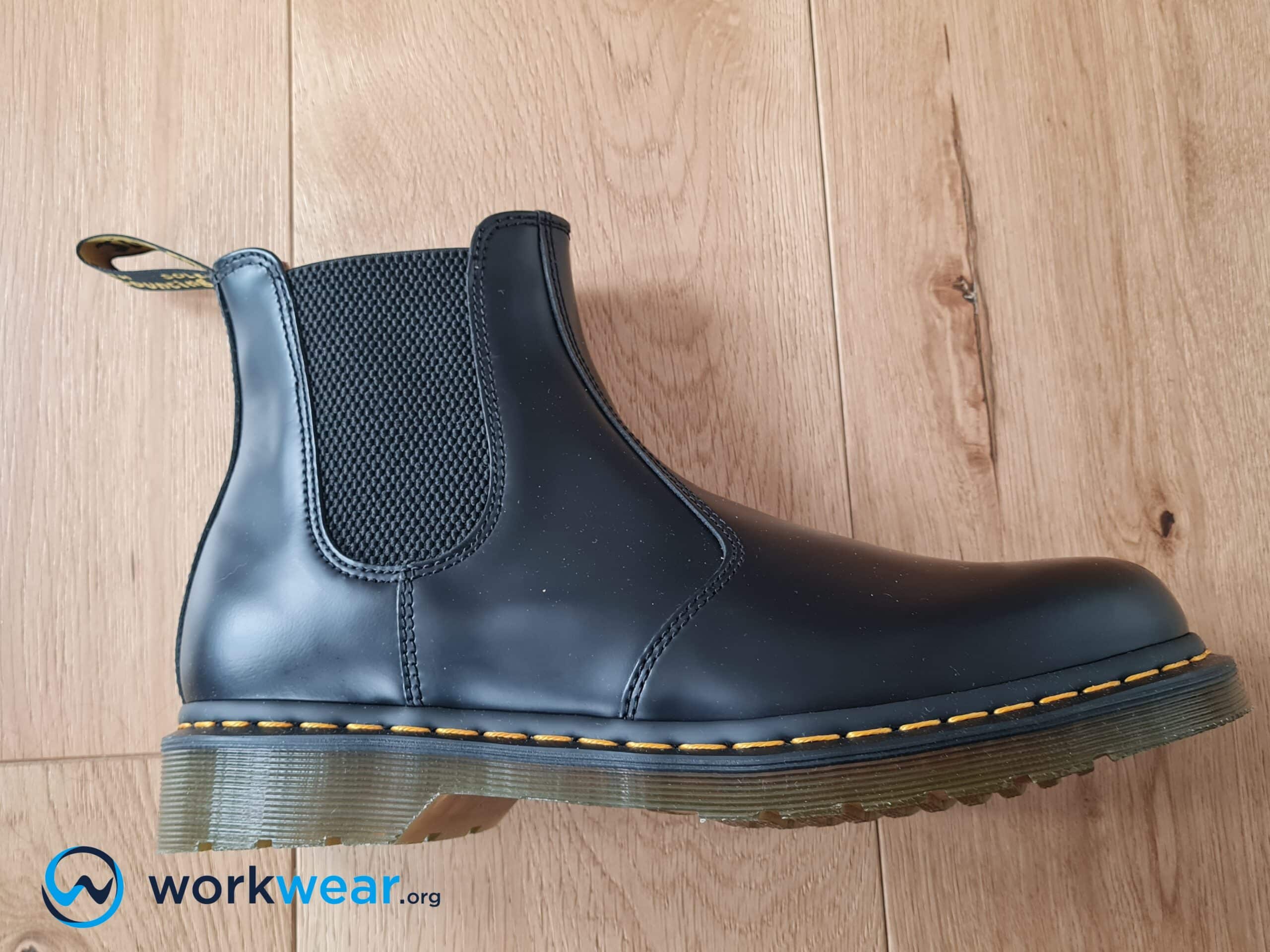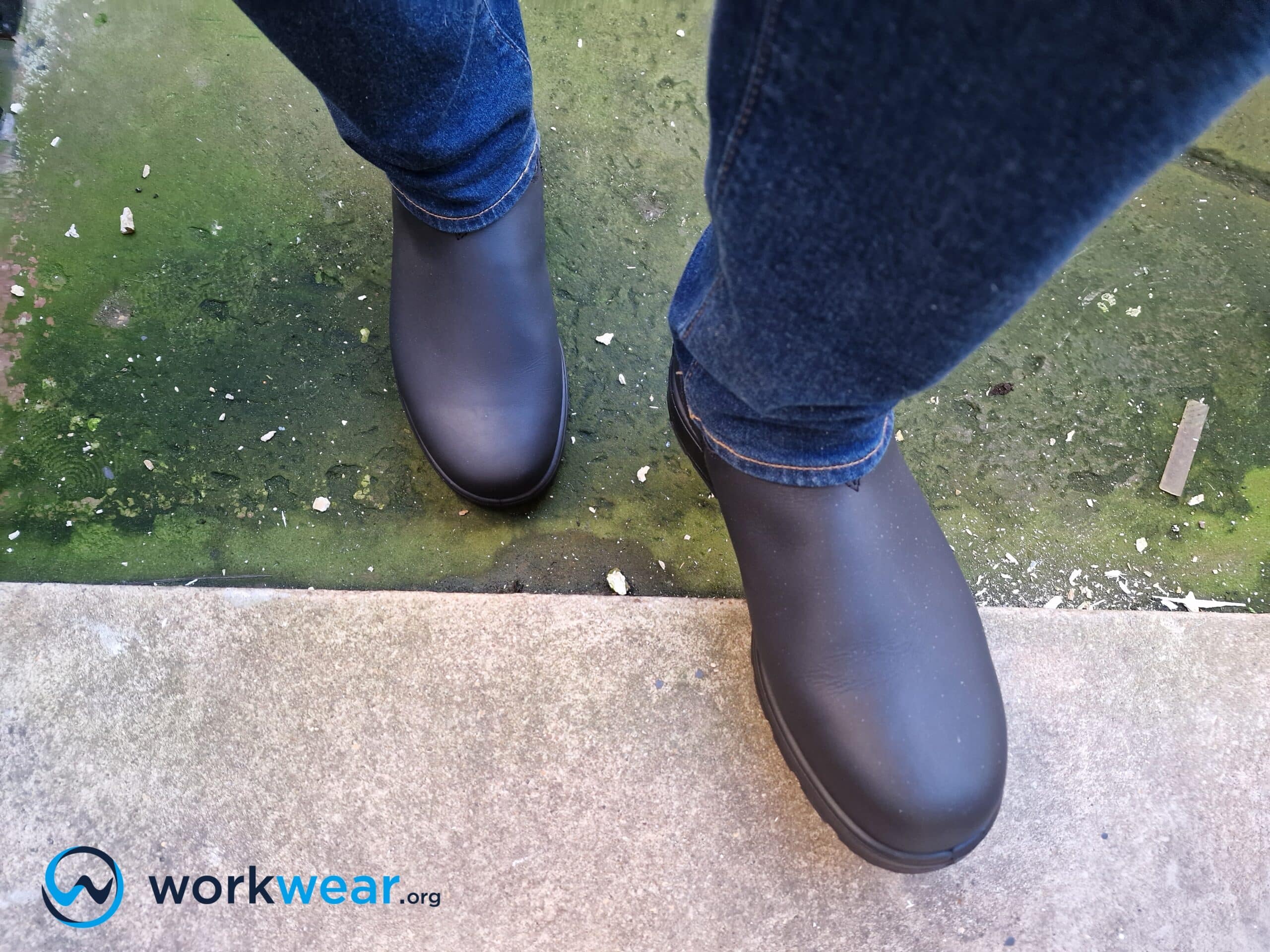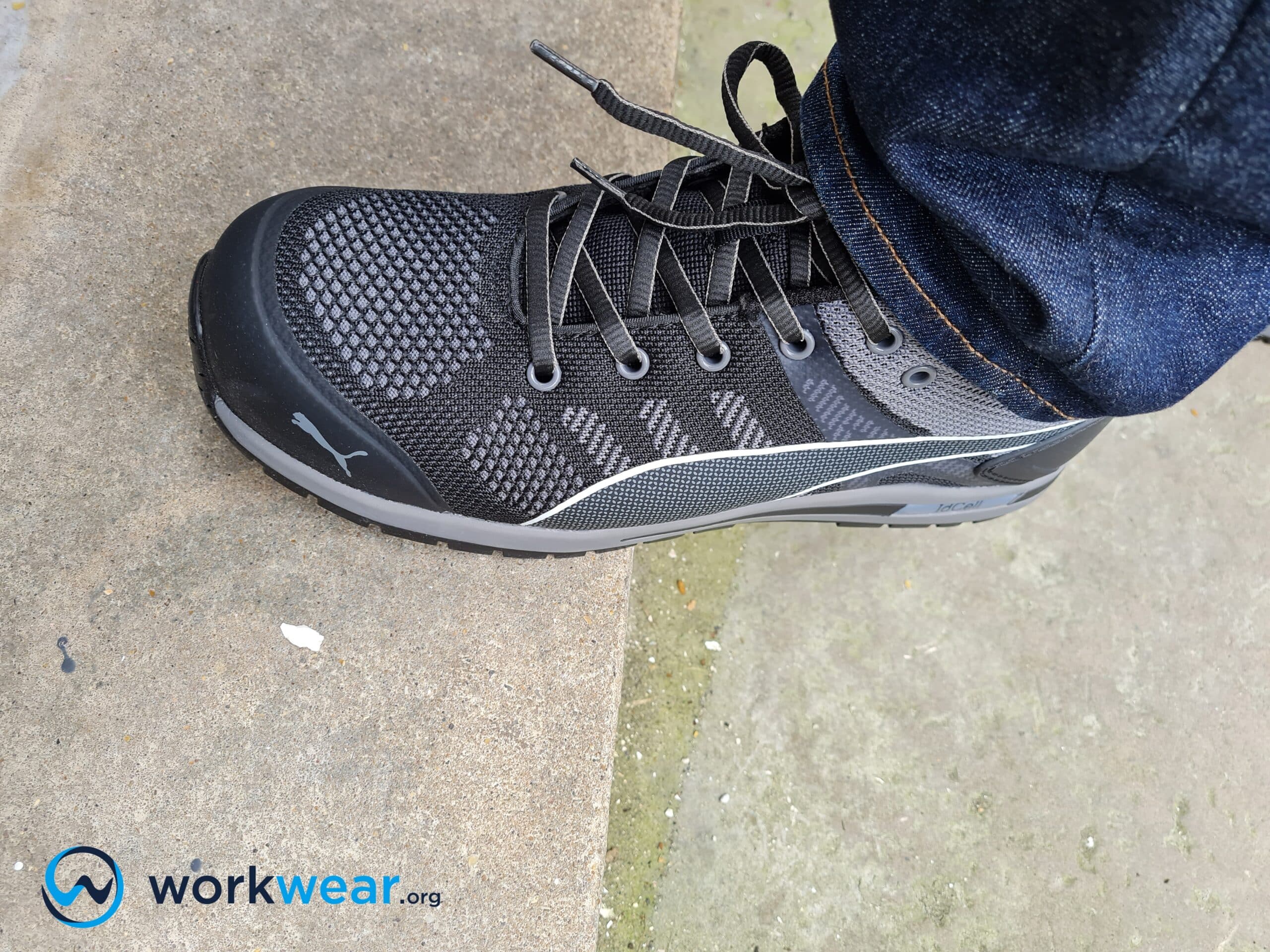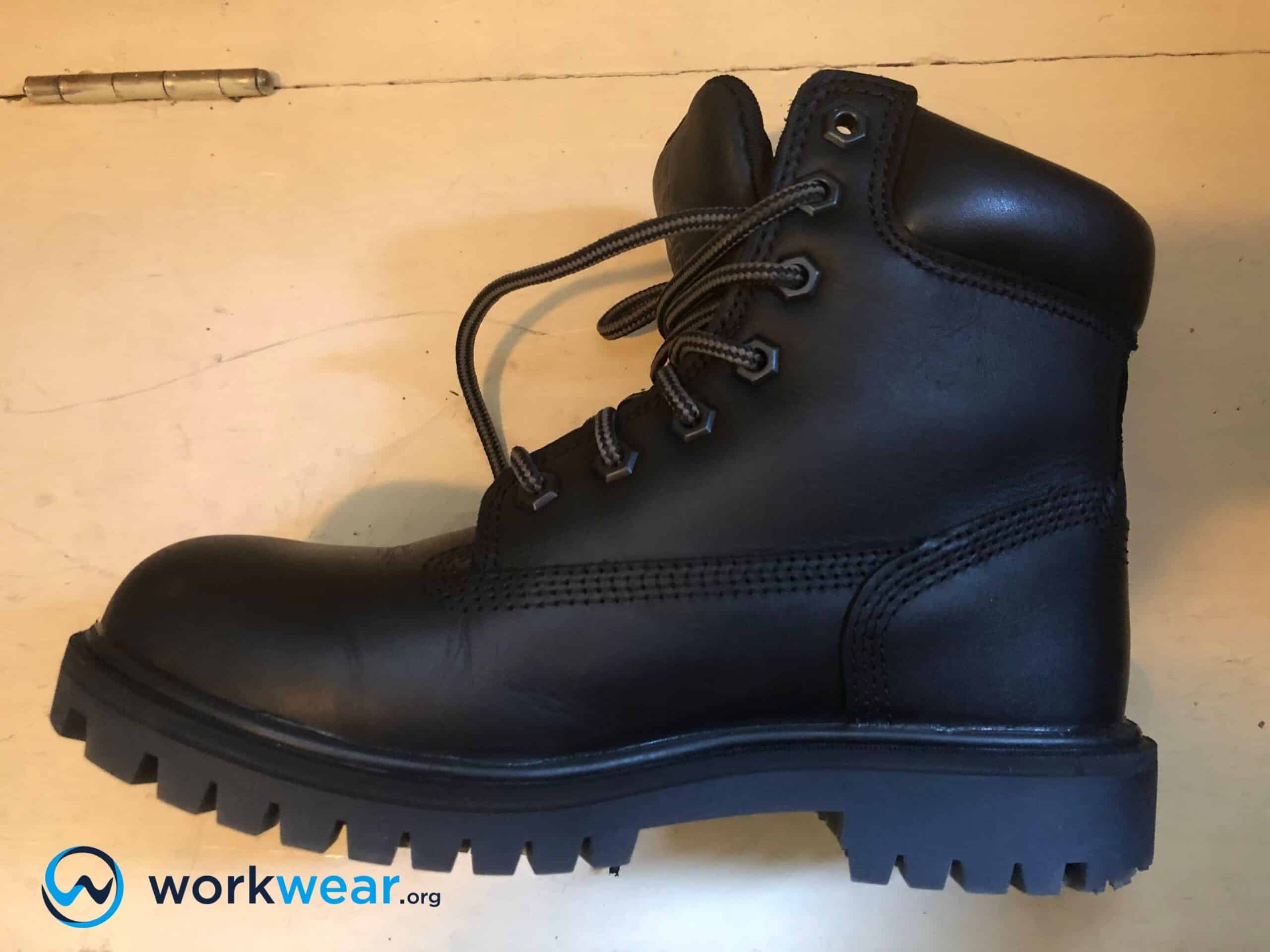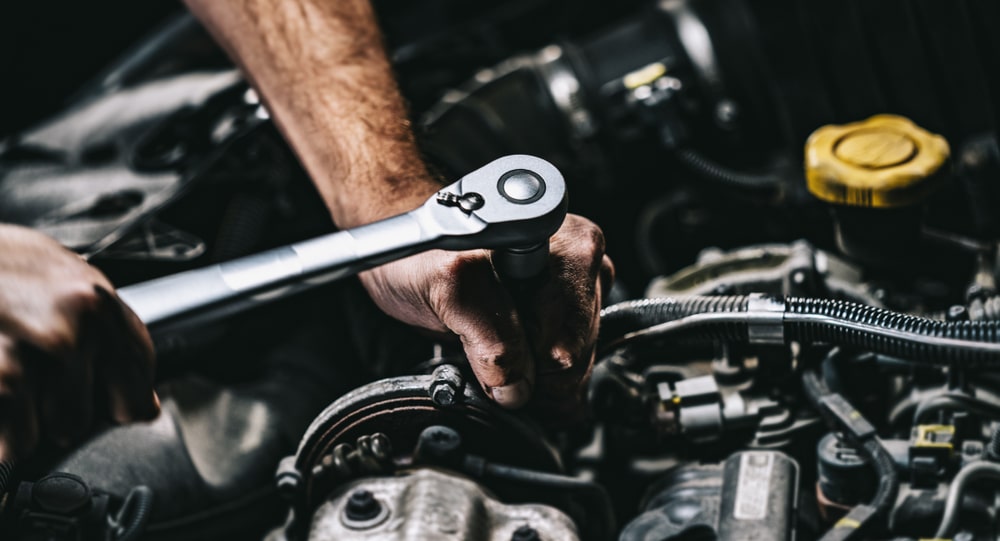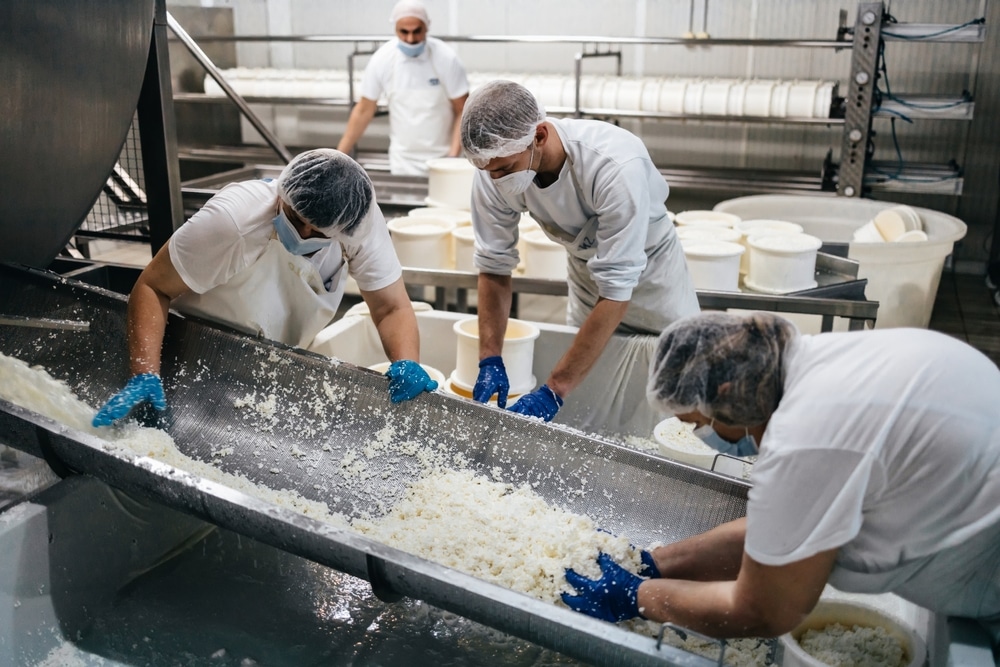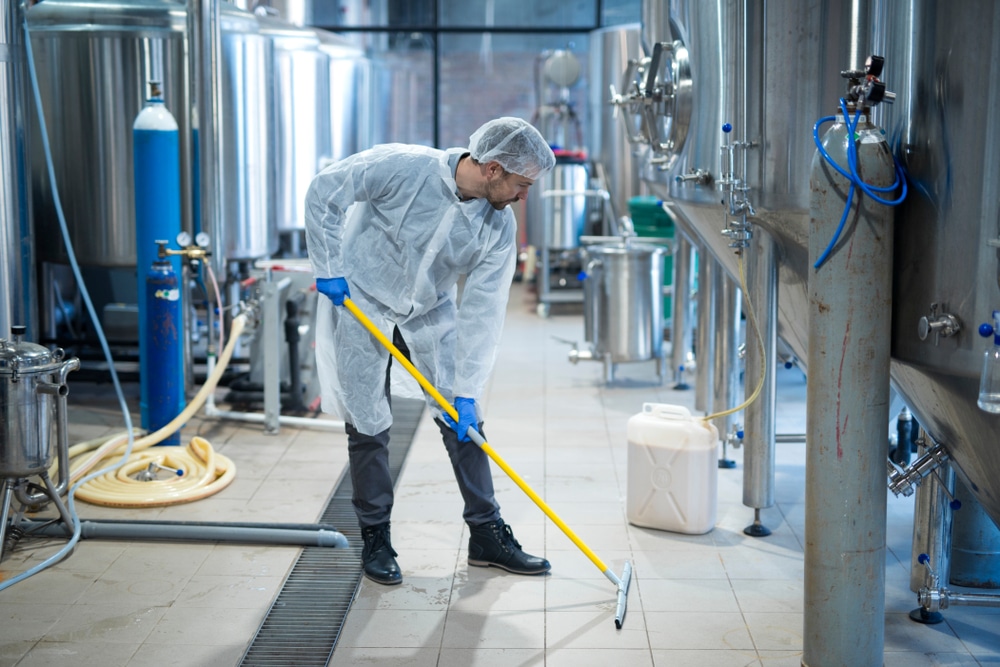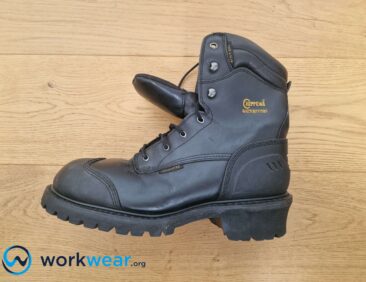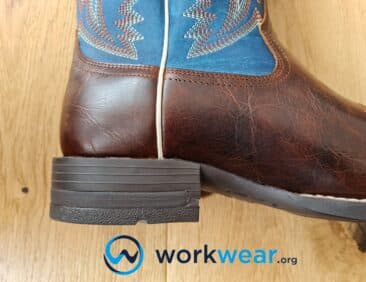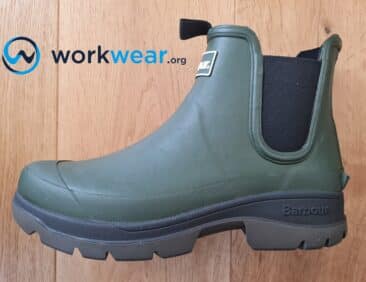Jobs That Require Work Boots with Chemical-Resistant Soles
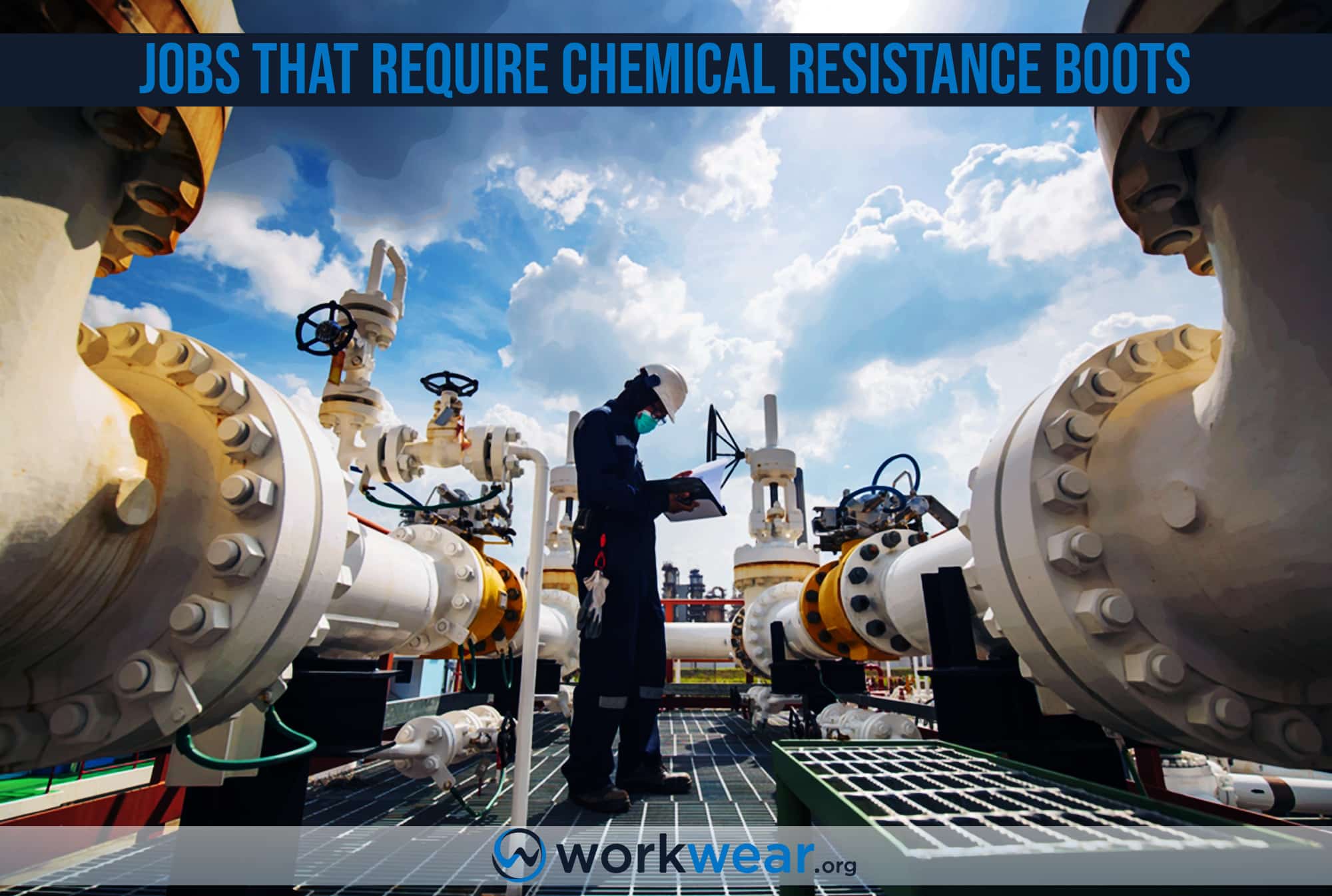
Work boots are designed to protect the feet from the top and on the bottom.
Work boots with chemical-resistant soles can protect the feet against harsh substances on the ground.
These work boots are needed by those whose jobs are exposed to oils, acids, chemicals, and other caustic materials that can spill on walking surfaces. The soles are made from materials that won’t absorb chemicals, keeping feet protected against chemical burns, irritation, and other injuries that can result from chemical exposure. In addition, chemical-resistant soles won’t easily deteriorate when they come in contact with harmful substances, so the boots retain their structural integrity and durability for much longer. This article will look at the jobs most benefit from using work boots with chemical-resistant soles.
Key Takeaways
Work boots with chemical-resistant soles are ideal for those who work with chemicals, acids, and other caustic substances. These outsoles can be made with natural rubber, nitrile rubber, PU, TPU, or PVC.
These work boots suit farmers and gardeners who need to protect themselves while walking on ground that may have spilled pesticides or fertilizers. They’re also very useful for cleaning personnel who handle chemical-based cleaning solutions and may need to clean up harsh contaminants.
Chemical-resistant soles are required by food processing plant workers who work on floors that may have chemicals for food preservation and quality enhancement. Kitchen staff working on floors wet with spilled animal fat or cleaning agents will also need boots with chemical-resistant soles.
Work boots with strong chemical resistance on the soles work great for auto mechanics whose work areas often have hazardous liquids, including motor oil and brake fluid. These boots protect the feet of firefighters from oil and chemical-based fire extinguishers. They can also keep the feet of lab technicians safe from spilled chemicals.
Chemical-resistant soles form impenetrable barriers to protect the feet of workers in oil & gas plants who are constantly exposed to toxic chemicals. Veterinary technicians need work boots with chemical-resistant soles that can shield the feet against animal waste and chemical-based cleaning solutions.
Materials Used for Chemical-Resistant Soles
Rubber
Rubber has good resistance to oil, fuel, and different chemicals that can be encountered in industrial worksites and other demanding settings.
Work boots with rubber soles won’t easily absorb and won’t get damaged upon exposure to acids and hydrocarbons.
However, work boots with soles constructed purely from natural rubber tend to be heavier than those made with other materials.
Nitrile Rubber
When nitrile is added to rubber, the resulting structure becomes even more resistant to acids, oils, and chemicals than natural rubber.
Nitrile rubber soles also offer superior puncture resistance, offering protection not only against chemicals but also from sharp objects. In addition, work boots with nitrile rubber soles prevent the absorption of solvents and low-concentration alkalis or acids.
It should be noted that nitrile rubber soles are less flexible and weaker than those made with natural rubber.
PVC
PVC is one of the most common materials used for chemical-resistant boots. The material can be used for the entire boots’ structures, but some boots only have this for the outsole.
PVC resists the absorption and deterioration of many oils, fats, alcohol, and most corroding chemicals (including salts and alkalis).
Work boots with PVC soles generally won’t degrade even with long exposure to caustic agents, making them ideal for job sites where these harmful components are present.
It’s worth noting that PVC is not resistant and may not stop the absorption of organic solvents, including ketones and chlorinated hydrocarbons.
TPU
TPU, outsoles in work boots, are known for their durability and flexibility and also deliver strong chemical resistance.
The ability to resist chemicals makes work boots with TPU soles suitable for jobs in industrial settings and other environments exposed to harsh substances. In addition, the toughness and chemical resistance of TPU work together to stop caustic liquids from seeping into the boots. As a result, walking on floors with chemicals and other hazardous liquids is much safer when wearing work boots with TPU soles.
PU
Outsoles made with PU have good resistance to chemicals, making them ideal for indoor and outdoor worksites where harsh substances may be present.
PU outsoles can be made with single or double density, which can have different shock absorption and comfort levels.
However, it should be noted that PU isn’t resistant to strong acids, so extra care should be taken to avoid exposure to such materials.
Neoprene
Work boots with neoprene soles are preferred because of their remarkable flexibility, but they also offer good chemical resistance.
These boots can be used on floors with gasoline and oil as they don’t absorb the liquids, keeping the feet safe against injuries and chemical burns. They also won’t be damaged by exposure to these harsh substances.
Jobs that Require Work Boots with Chemical-Resistant Soles
Firefighters
Firefighters often do their jobs in extremely dangerous conditions.
While putting out fires, firefighters may be surrounded by ground conditions where oils and fire retardants are spilled all around. Work boots with chemical-resistant soles act as barriers under the firefighters’ feet. These boots protect against harsh substances that can cause severe irritations and burns without the proper foot safety gear.
Work boots with nitrile rubber outsoles offer strong chemical resistance and heat resistance for even better safety for firefighters.
Farmers
Farmers work in conditions where various chemical solutions are needed to get the job done. The work area may have traces of fertilizers and pesticides that can be spilled over a busy day.
For added protection on the farm or barn, farmers require work boots with chemical-resistant soles that can block harsh substances on the ground.
The sturdy soles don’t absorb these strong solutions, so they won’t come in contact with the feet and cause chemical burns or severe irritation. Chemical-resistant soles also protect the feet against oils and animal waste that may be present in some farm or barn settings.
Auto Mechanics
While fixing or doing maintenance work on vehicles, auto mechanics must handle different solutions to get the job done correctly. The work area can have hazards from heavy or sharp items and chemical-based products that can accidentally spill on the floor.
Work boots with chemical-resistant soles shield the feet of auto mechanics, so harsh solutions, such as motor oil, brake fluid, or fuel, won’t harm them.
The strong chemical resistance of these soles ensures that mechanics can walk over the hazardous fluids without the dangerous substances seeping into the boots, which also won’t suffer permanent damage with the exposure.
Food Processing Plant Workers
Those who work in food processing plants handle natural ingredients and other raw materials used for food.
However, they can also be exposed to harmful substances while on the job. Chemicals used in food processing extend product shelf life with antimicrobial action and improve food texture and color. Workers need to use work boots with chemical-resistant outsoles to protect their feet from getting irritated by chemicals used in food processing plants.
These outsoles create barriers underfoot against acids and animal oils that may be encountered in areas where various food products are processed.
Cleaning Personnel
Cleaning personnel needs the help of strong cleaning solutions to maintain the cleanliness of the areas to which they’re assigned.
The liquid cleaning solutions don’t always stay in their containers, and spilling on the ground can increase the risk of chemical burns or serious skin irritation.
Work boots with chemical-resistant soles shield the feet from the bottom by stopping harsh cleaning solutions from seeping into the boots. These work boots are worth investing in as their soles won’t easily break down with exposure to toxic liquids.
The boots can be maximized for a long time, continuing to look and function well even after exposure to chemical-based solutions.
Gardeners
Gardeners may be tasked with tending to plants that beautify the surroundings, but they can be exposed to harmful substances while doing their job. Fertilizers and pesticides are often required to ensure that the plants are protected and continue to grow healthy, but these products can cause harm to the skin.
Work boots with chemical-resistant soles provide the coverage that the feet need to continue walking safely on the ground where harsh substances may have been spilled.
The soles, made from materials such as PVC or neoprene, stop chemicals from penetrating to prevent chemical burns and extreme skin irritation. In addition, the sturdy soles won’t easily break down when exposed to chemical-based solutions, which may easily damage other materials that don’t have good chemical resistance.
Oil & Gas Plant Workers
Professionals in petrochemical plants are exposed to some of the most hazardous work conditions.
The work involves handling various toxic chemicals that, when accidentally spilled, can cause serious skin irritation or even burning. Work boots with chemical-resistant outsoles can’t be penetrated by oils, fuel, and other corrosive substances commonly present in oil and gas plants.
Since the toxic liquids can’t see into the boots, the feet stay protected even with continuous chemical exposure in industrial settings.
These boots are sturdy enough to withstand frequent exposure to hazardous substances without significant damage.
Kitchen Staff
Kitchen staff members work on their feet on floors that are almost always wet with ingredients, cooked items, and other components for food preparation. In addition, kitchen floors can sometimes be greasy with oil splatters due to continuous food frying activities.
Work boots with chemical-resistant soles don’t allow oils and acids (which can be present in some food items) to be absorbed.
This quality ensures that the feet won’t be harmed by potentially irritating substances that can be spilled on the food preparation area. In addition, the outsoles are tough and won’t easily deteriorate with repeated exposure to acids and oils in the kitchen.
Veterinary Technicians/Specialists
Working with animals – especially the sick ones – will require boots with tough soles. In addition, it’s common for vet techs to work on floors with animal excretions that may not be cleaned up that quickly.
Work boots with chemical-resistant soles don’t absorb liquid or solid animal waste, protecting veterinarian technicians’ feet against irritation and potential skin infections.
These boots also work well in keeping feet safe against chemical-based cleaning solutions, which technicians may need to clean up messy areas after taking care of animals.
Chemical Laboratory Technicians
Laboratories technicians work mostly in controlled environments but can still be exposed to safety hazards. This is especially true for technicians who work with hazardous chemicals, which can accidentally spill on the floor during transport or while doing experiments.
Work boots with chemical-resistant soles are suitable for keeping the feet safe from corrosive chemicals that can burn the skin and cause severe allergic reactions.
The soles form impenetrable barriers that stop toxic substances from entering the boot, ensuring that the feet remain protected even while walking directly on spilled chemicals.
Personal Testing Experience
We had the chance to try two high-quality boots with sturdy, chemical-resistant soles. The Dunlop Protomastor Full Safety Boot has an outsole made with a combination of PVC and nitrile, delivering superior chemical resistance while creating a flexible structure that doesn’t hamper the feet’s natural motion. It has steel toe caps to shield the toes against dangerous compression and impact in hazardous conditions, while the waterproof design keeps the feet comfortably dry in wet settings. It can also accommodate wide feet, but the soles feel too thin. Meanwhile, the Reebok Sublite Cushion RB806 8-Inch Tactical Waterproof Boot features an aggressively lugged rubber outsole that offers good resistance to chemicals, oil, metal chips, and abrasion. The ballistic nylon sections offer maximum durability and flexibility without excessive weight, while the electrical hazard design minimizes the risk of electric shock. Again, this waterproof boot is ideal for wet environments, but the sole doesn’t feel durable.
Conclusion
Work boots with chemical-resistant soles offer enhanced protection in demanding work areas with exposure to chemicals, acids, and other harsh substances. These boots protect the feet against chemical burns and irritation from exposure to toxic agents in certain products. The chemical-resistant soles ensure that the acidic substances won’t penetrate or deteriorate the boots’ structure from the bottom. These outsoles significantly prolong the boots’ life while offering superior foot protection in hazardous environments.
FAQs
- Are all chemical-resistant soles also safe from acids?
- No – some chemical-resistant soles are not resistant to acids. However, if work boots with acid resistance are required for your job, it’s best to look for options with this specification.
- Can chemical resistance also extend to the upper?
- Yes – work boots offer chemical resistance on the outsole and the uppers for maximum protection against hazardous substances.
- Are chemical-resistant soles comfortable?
- It depends on the material used and the boot’s design. Neoprene, TPU, and PU are typically lighter and more flexible than natural rubber, so the former options are generally more comfortable.
- Do all boots with chemical-resistant soles have safety toes?
- No – chemical-resistant soles can be fitted into work boots and rubber boots that may or may not have safety toe caps.
678+
Products Reviewed
24+ Years
Combined Experience
500+ Hrs
Field Testing
